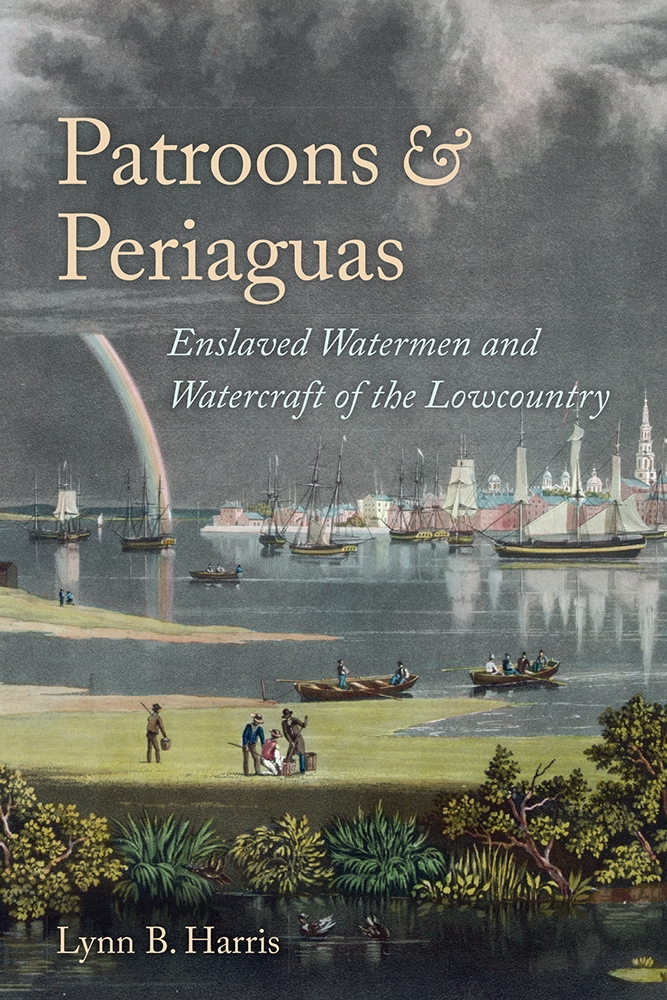Black History Month Sale: 40% off all books, plus FREE SHIPPING on all U.S. orders over $50 | Use code JBHM26

Size: 6 x 9
Pages: 160
Illustrations: 17 halftones
Lynn B. Harris
The inclusion of this book in the Open Carolina collection is made possible by the generous funding of
"Patroons and Periaguas points maritime scholars in a fresh, exciting, and more interdisciplinary direction and therefore deserves much credit and consideration."—South Carolina Historical Magazine
"Lynn Harris has written a carefully researched study, drawing on archaeological, manuscript, material culture, and visual culture resources to argue that the water-based culture in the South Carolina Lowcountry from early settlement to the American Revolution was truly multicultural. Just as Charles Joyner argued in Down by the Riverside for a fusing of European and African practices into a new creole culture of rice cultivation, Harris demonstrates through examination of boat design, boat building techniques, and boat use on the rivers and bays along the South Carolina coast that African as well as indigenous American practices shaped the very forms of the periaguas used by planters to bring Carolina's fur and rice commodities to market and gave the enslaved patroons who built and mastered them a limited degree of autonomy."—Constance B. Schulz, professor emeritus, department of history, University of South Carolina
"Patroons & Periaguas takes an important step beyond previous studies of class and race in a hierarchical Colonial South. Harris's eidetic approach unites both the historical record and material culture of vernacular watercraft to uncover a syncretic society melding Native American, African and European cultures. She generates an infinitely more complex and nuanced perspective of Southern society."—Paul E. Fontenoy, curator of maritime research and technology, North Carolina Maritime Museum
"A remarkable work that properly describes the melding of Native American, African, and European nautical traditions that created South Carolina's coastal shipping heritage. Harris's fine account of the evolution of the people and vessels of South Carolina is an exceptional contribution to the state's history and understanding the connection between South Carolina and the greater Atlantic world."—Stephen R. Wise, author of Lifeline of the Confederacy: Blockade Running during the Civil War
Copyright 2026
Website By Morweb.org